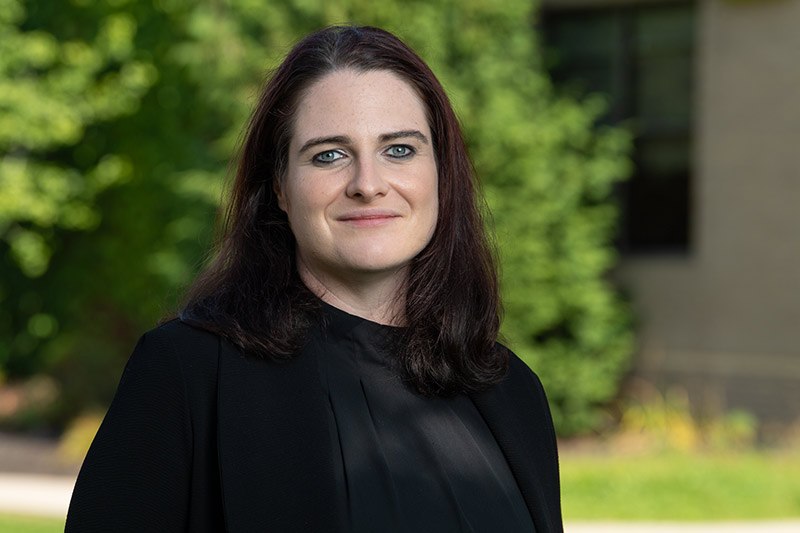Making a positive impact by studying and improving housing security
Author: UNB Newsroom
Posted on Oct 28, 2022
Category: UNB Saint John

Dr. Julia Woodhall-Melnik, the Canada Research Chair in Resilient Communities at the University of New Brunswick (UNB), is a researcher and social justice advocate who is pushing for the systemic changes required for individuals to meet their basic needs.
Woodhall-Melnik, an associate professor of social science at UNB and the principal investigator of the Housing, Mobilization & Engagement Research Lab (HOME-RL), explores the connections between housing affordability and mental health and well-being and how policymakers can develop solutions for improving living conditions for low- to moderate-income individuals.
Her work is driven by the needs of individuals experiencing poverty and the agencies that serve them. As a community-based researcher, Woodhall-Melnik looks for solutions to help some of the most vulnerable members of our society.
“Many people are waiting for affordable housing right now, and that's largely due to the crisis that we as a society are in,” she said. “We have recently seen our housing waitlist double, so we know there's a lot of need.”
Through the Canada Research Chair, Woodhall-Melnik works with the broader community. Her goal is to use her research to create an evidence-based demonstration project that focuses on housing affordability, suitability and access.
The Chair has provided her with a lot of opportunities to connect with people across a broad spectrum. Recently, she went to the European Network for Housing Research conference, and she regularly collaborates with people from the Canadian Housing Evidence Collaborative about their national perspectives on housing.
She is also developing a model for affordable housing that can help everyone live healthy and meaningful lives. She believes that struggling under the stress of housing unaffordability is unfair, dangerous and unhealthy, and it does not provide people with the mental space to thrive.
“Early findings for one of our studies indicate a high prevalence of depression and poor physical health and distress among our baseline population,” she said. “We hope to use this data to identify some of the barriers to improving housing security in the province and work with service providers and other partners to create affordable and inclusive housing options.”
Woodhall-Melnik hopes to use the data she collects through her research to advocate for change and share that data with government, non-profit and industry partners, and other academics. She wants to shed some light on what is happening and break down some assumptions and stigmas.
“It is important for us to identify the misconceptions we may have about certain populations,” she said. “It can help a lot in terms of building solutions, generating a willingness to address a problem and investing in things going forward.”
“I find it completely unfair that some parents are under constant stress to maintain roofs over their heads; that folks who have worked hard all their lives live in poverty in retirement; that youth who are just starting out cannot afford stability and the ability to grow; that people who experience disabilities and neurodiversity are regulated to poverty by social support systems that cannot provide enough to live but penalize them for working,” she said.
Woodhall-Melnik understands that a person’s quality of life is largely dictated by where they are born. As Chair, she is addressing these injustices and will use this work to make our communities stronger, healthier and kinder. “Once people get into housing, we need to figure out how to effectively implement trauma-informed support services that focus on education, self-actualization, mental health and well-being and optional substance use programming,” she said.
“I envision a type of government care system that helps people design spaces that are therapeutic to them instead of places that are triggering and retraumatizatizing.”
She also mentioned other options, such as affordable homeownership programs and cooperative housing. “We are at the point now where our data points to the problems, and we're looking forward to building towards the solution,” explained Woodhall-Melnik.
“Right now, we have been trying to understand the experiences of people so we can better advocate alongside them for evidence-based solutions as allies. We want to help alleviate barriers towards social and economic inclusion,” she added. “Once we understand those barriers, we can start to work with that population to advocate for, develop and experiment with solutions.”
Media contact: Angie Deveau
